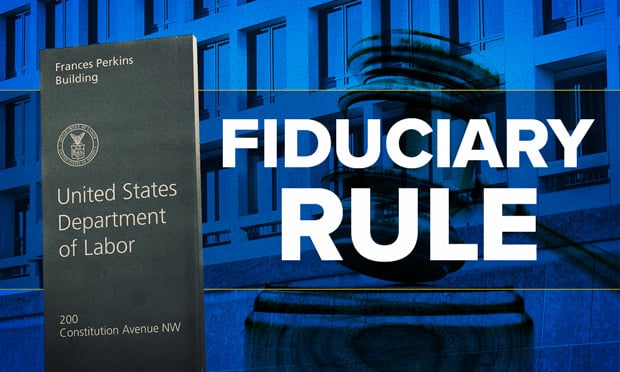The Department of Labor’s proposed fiduciary rule will affect about $3trillion of retirement assets and $19 billion of revenue in thefinancial services industry, according to analysis fromMorningstar.
|Morningstar’s report suggests that previous government andindustry cost analyses of the rule are low.
|Those estimates are focused on the expense of implementing therule, writes Stephen Ellis, director of financial services equityresearch at Morningstar.
|But simply focusing on the cost of implementing the proposedrule “vastly” underestimates the rule’s potential impact on thefinancial services industry.
|“Investors and business analysts looking only at the morestudied implementation costs of the rule are vastly underestimatingthe rule's potential impact on the financial sector,” according toEllis.
|He says the high-end estimates put the rule’s cost to industryat $1.1 billion.
|The actual cost of the rule will be in the neighborhood of $2.4billion, twice what other analysis is projecting, says Ellis.
|The report says investment managers—it names BlackRock—andwealth management firms—it names Morgan Stanley—could see theirbusiness models “drastically” altered.
|To this point, the consensus of analysis says the proposal’sBest Interest Contract Exemptions will make commission-based salesof investment products unprofitable for providers.
|If finalized as proposed, the rule will enforce afiduciary standard of care on allinvestment advisors to the retail market, and on thousands ofadvisors to defined contribution plans.
||Though the rule does not outlaw commission-based sales, thepreponderance of experts say that complying with its prohibitedtransaction rules will be so costly that advisors of IRAs and401(k)s will be incentivized to charge a fee for advisoryservices.
|That will address what the DOL and the Obama White House say arethe systemic conflicts of interest that cost investors billions ofdollars each year.
|In its report, Morningstar says that wealth managers “may”convert commission-based IRAs to a fee-based compensation structurein order to comply with the rule.
|That will create some new revenue for retirement productproviders and advisors.
|Fee-based accounts can yield up to 60 percent more in revenuethat commission-based accounts, and that could mean another $13billion in revenue for the industry, Morningstar says.
|Robo-advisors stand to benefit from the rule, says Morningstarand other industry analysis.
|Morningstar expects between $250 billion and $600 billion oflow-account balance IRAs will flow out of commission-basedaccounts.
|Stand-alone robo-advisors, like Betterment and Wealthfront, areexpected to capture some of those assets.
|The rule will also move more than $1 trillion of retirementassets into passively managed investment funds, saysMorningstar.
Complete your profile to continue reading and get FREE access to BenefitsPRO, part of your ALM digital membership.
Your access to unlimited BenefitsPRO content isn’t changing.
Once you are an ALM digital member, you’ll receive:
- Critical BenefitsPRO information including cutting edge post-reform success strategies, access to educational webcasts and videos, resources from industry leaders, and informative Newsletters.
- Exclusive discounts on ALM, BenefitsPRO magazine and BenefitsPRO.com events
- Access to other award-winning ALM websites including ThinkAdvisor.com and Law.com
Already have an account? Sign In
© 2024 ALM Global, LLC, All Rights Reserved. Request academic re-use from www.copyright.com. All other uses, submit a request to [email protected]. For more information visit Asset & Logo Licensing.








